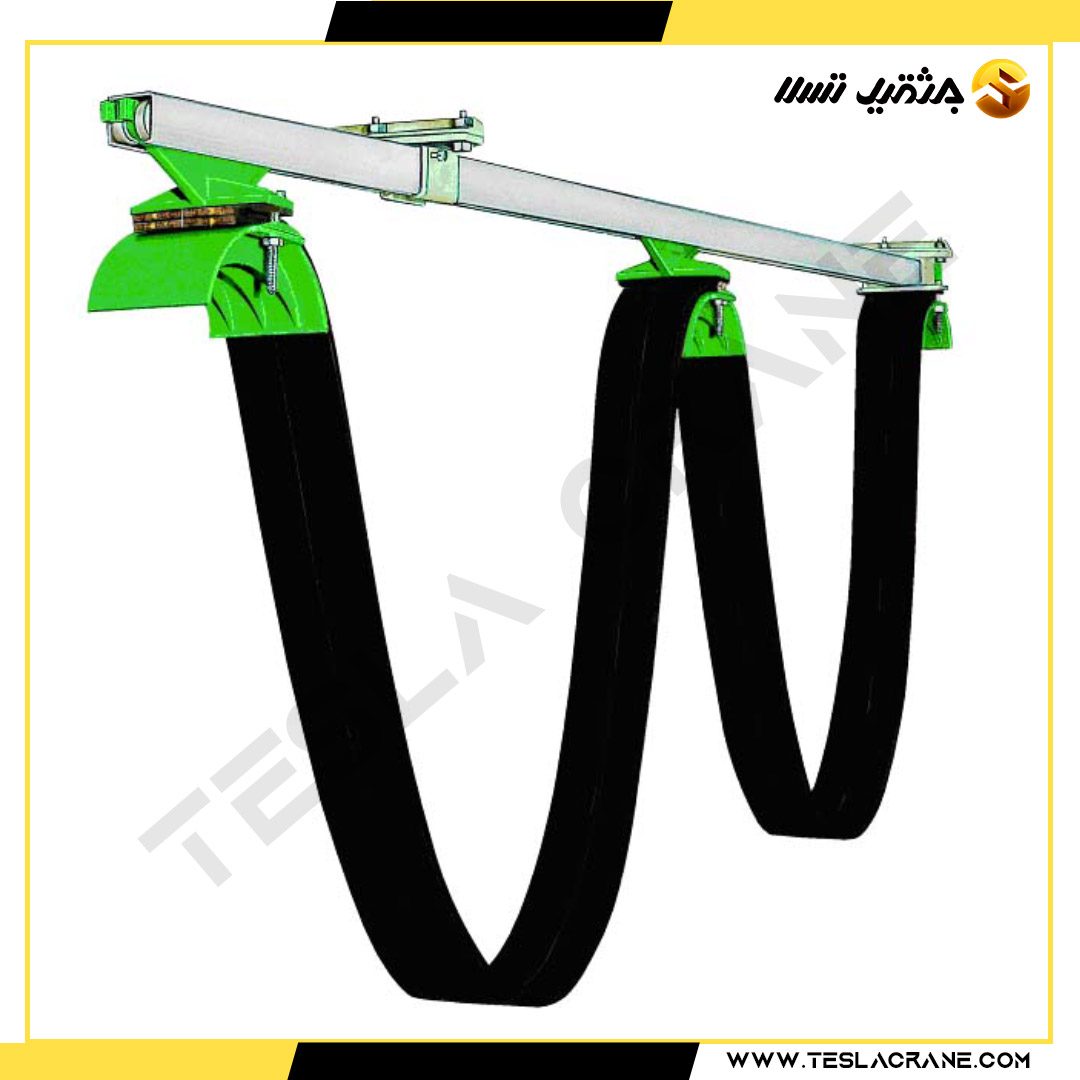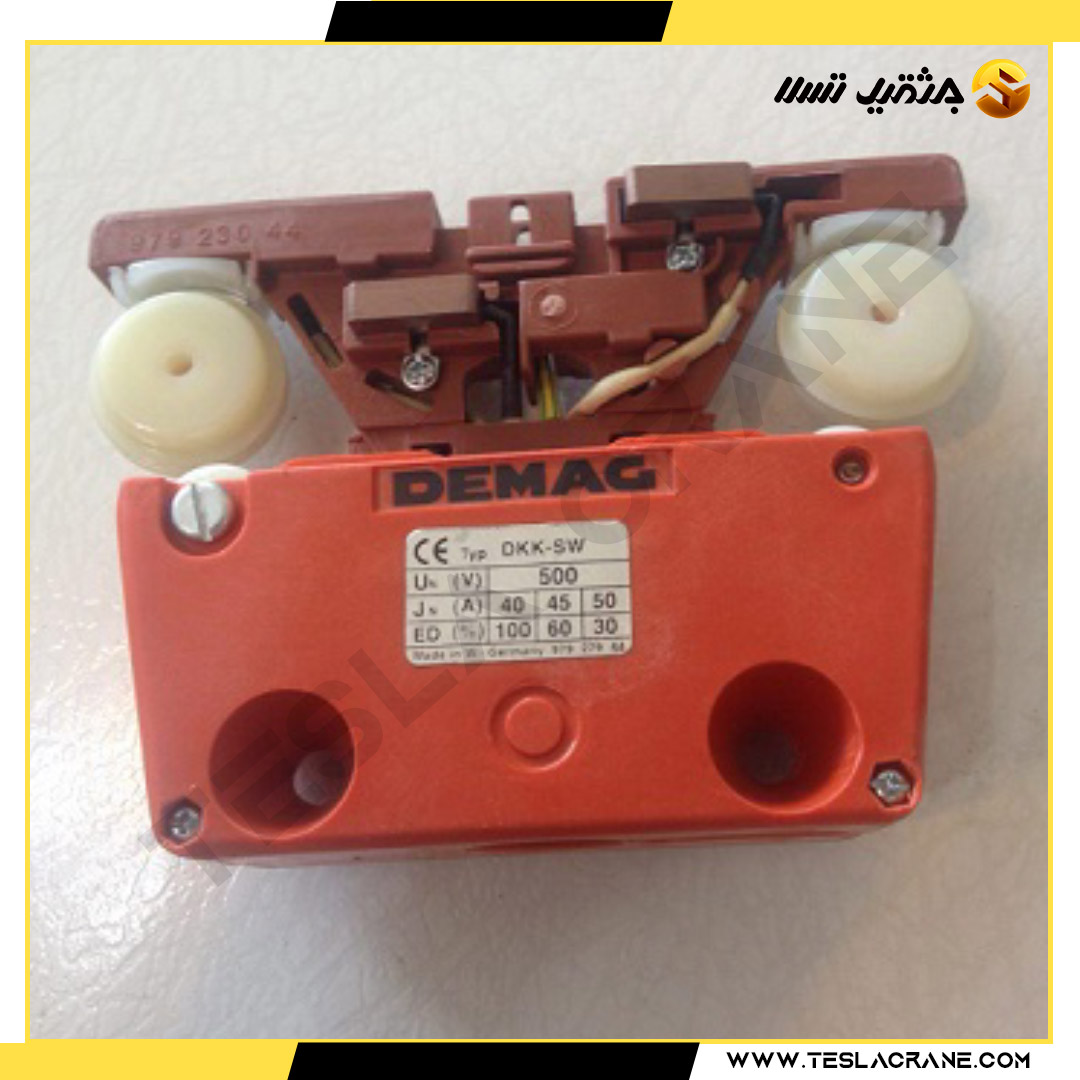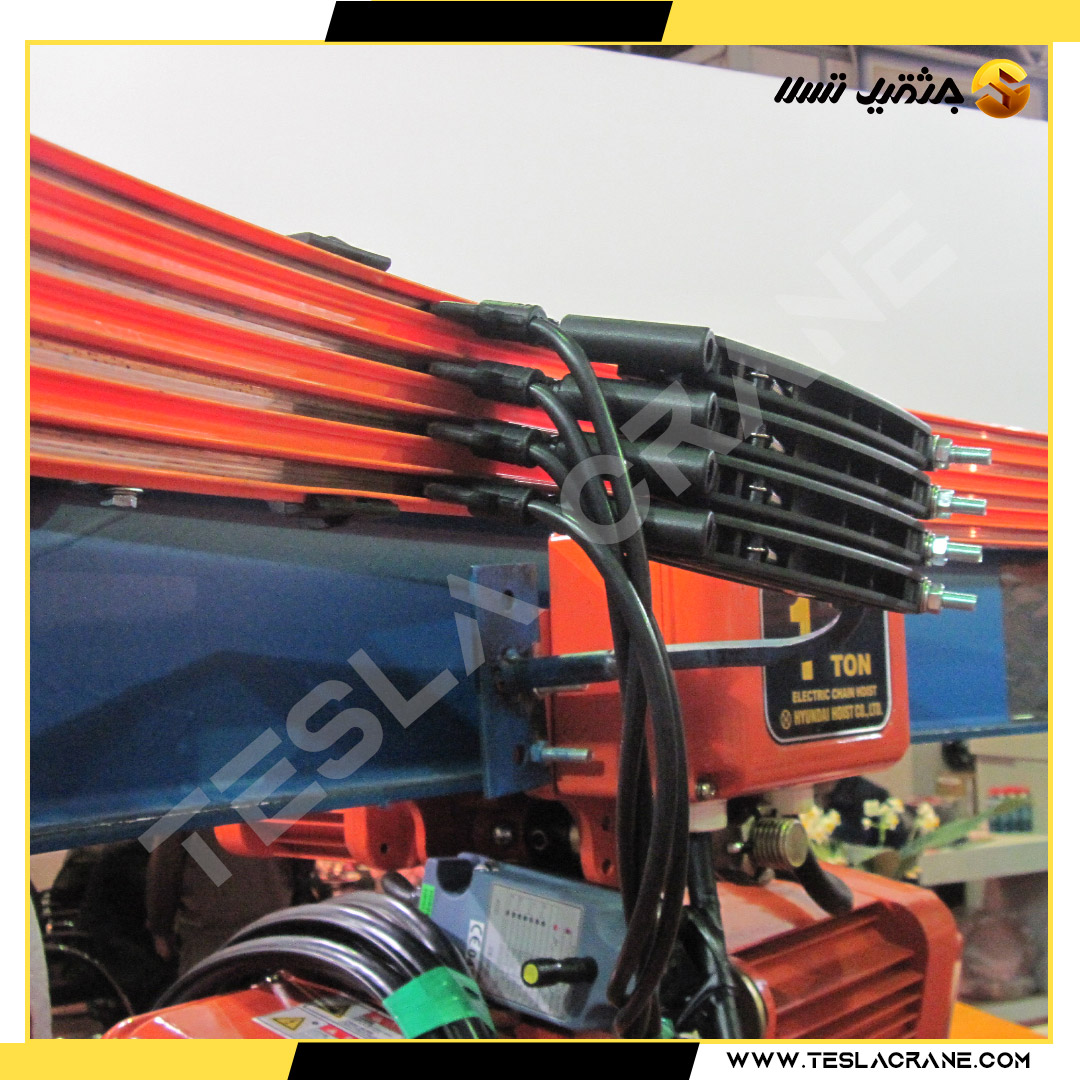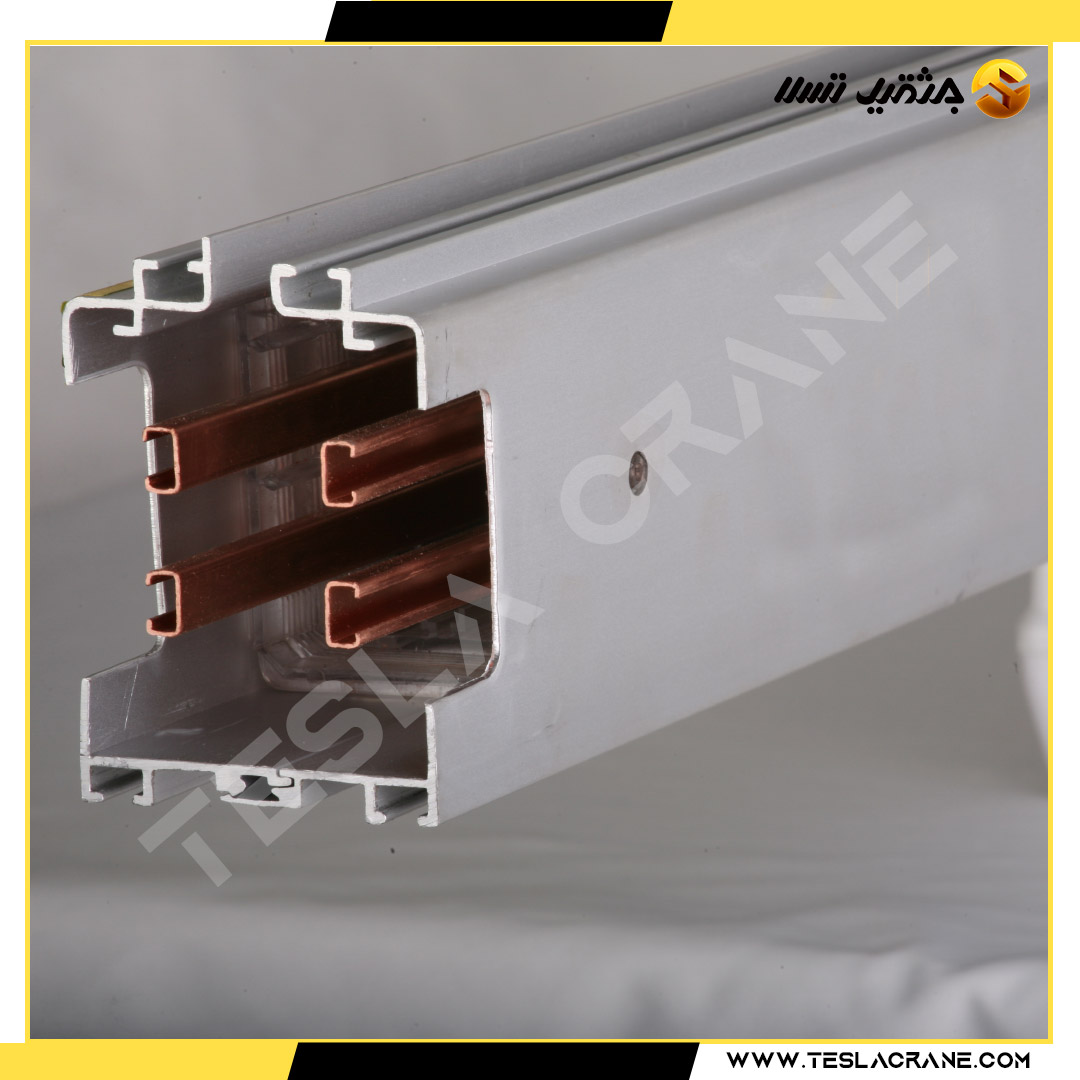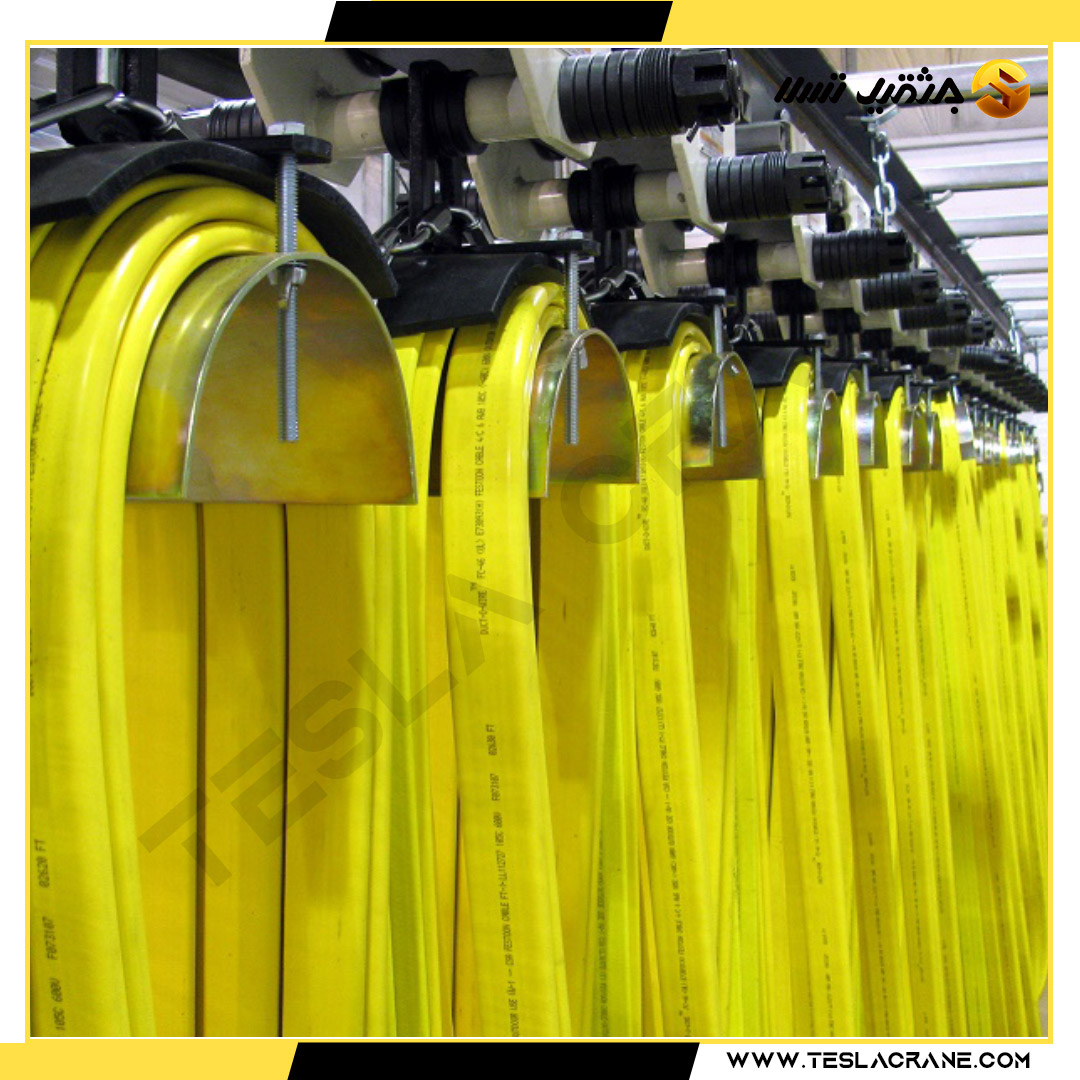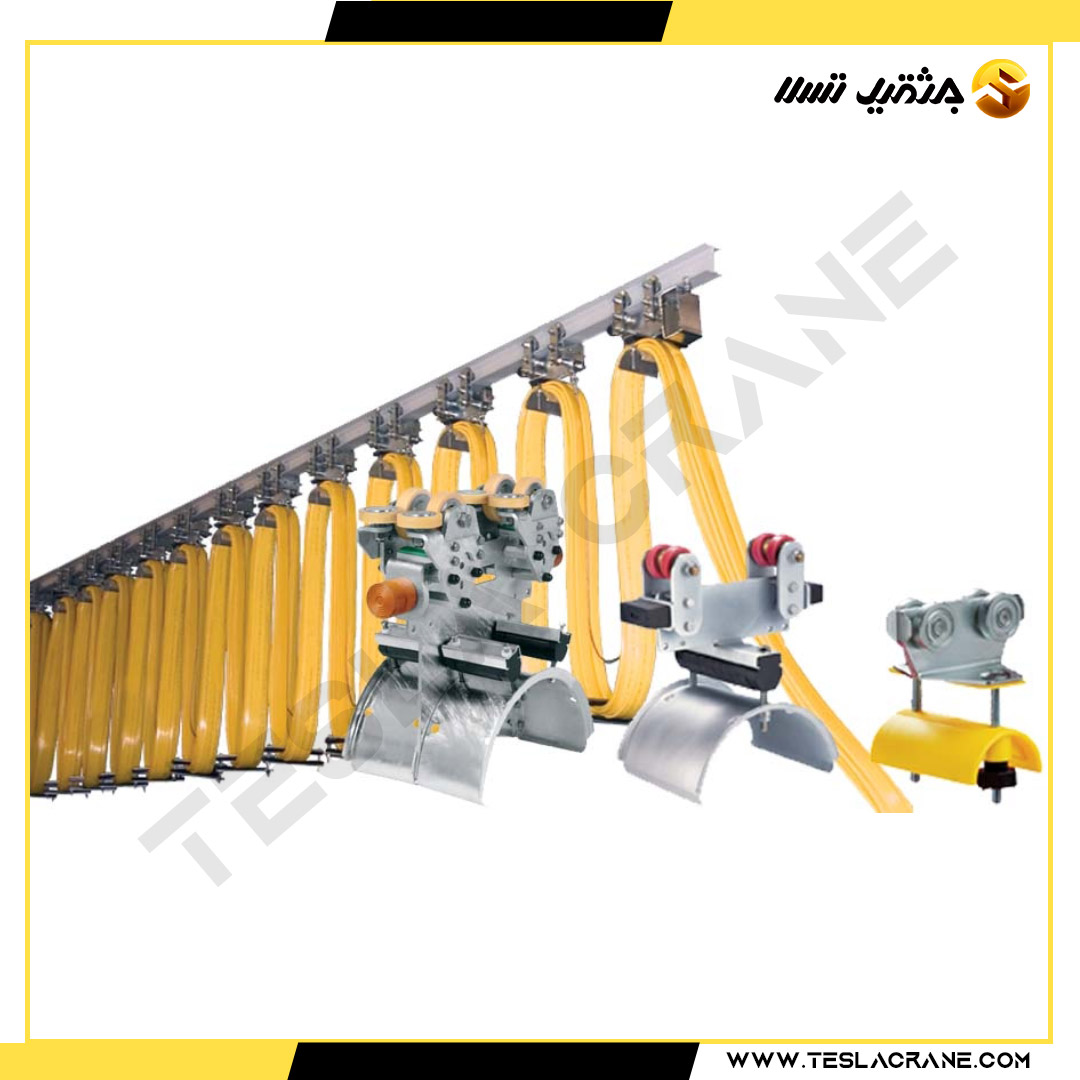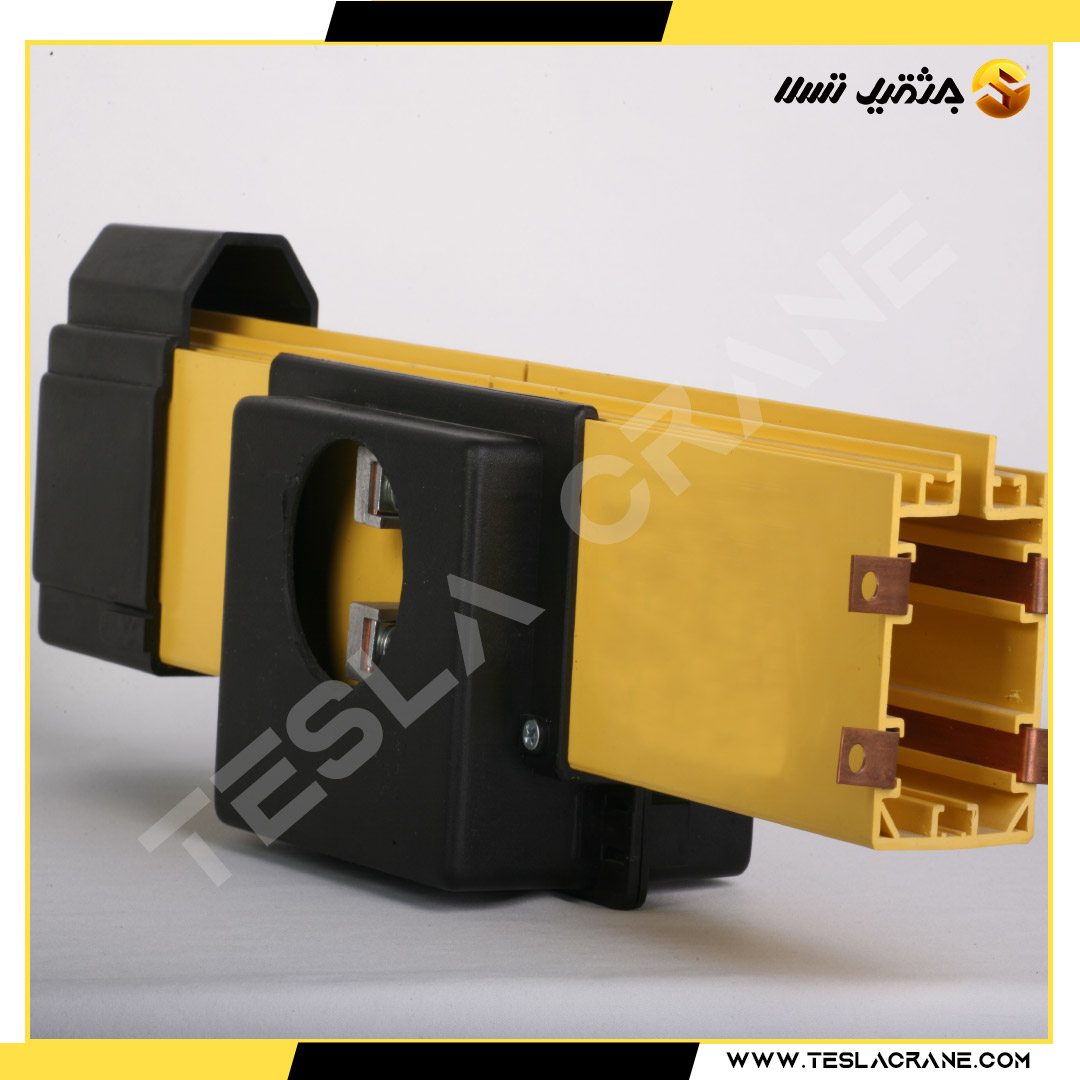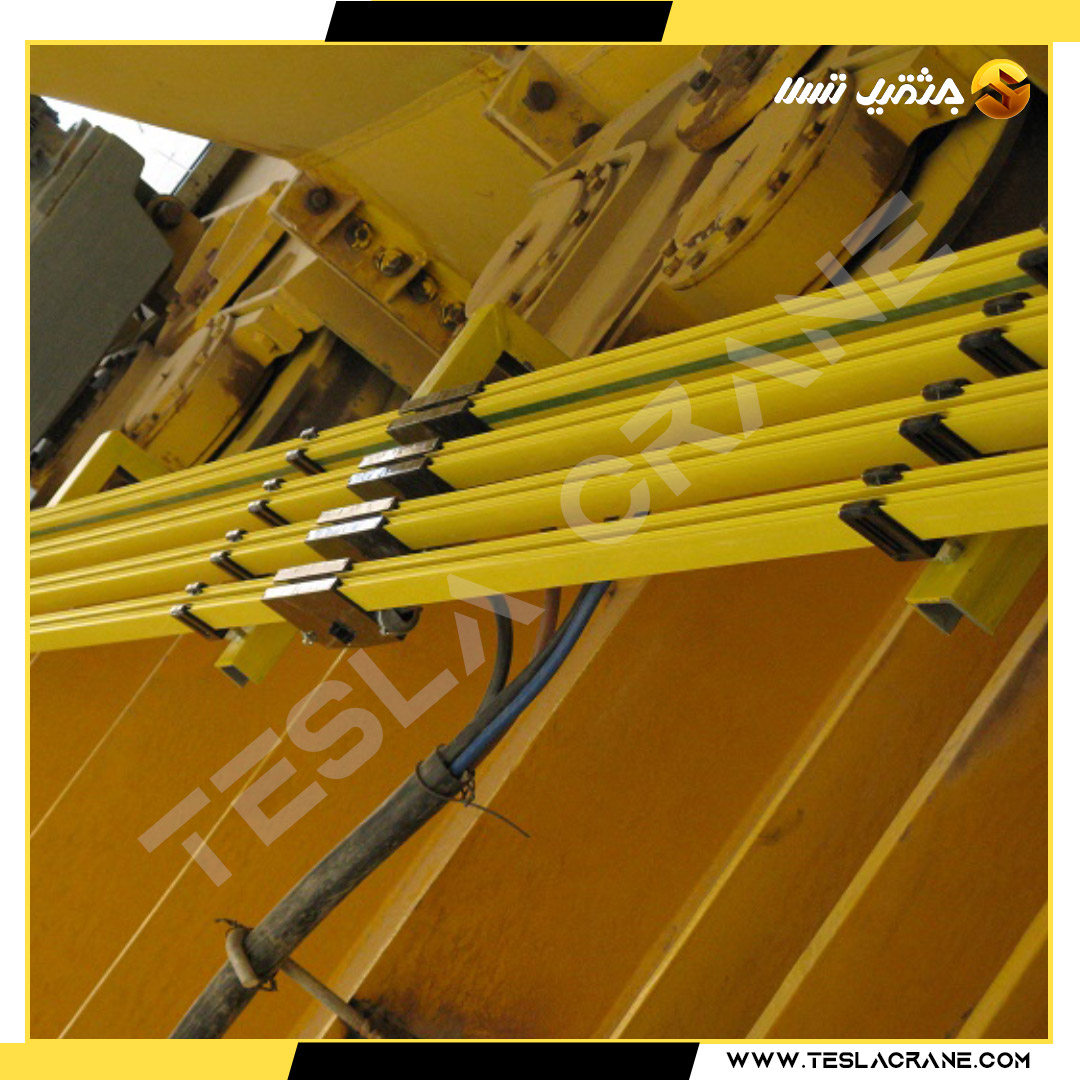Crane and Hoist Power Supply Systems
Power supply systems are one of the most critical components in the operation of cranes and hoists. These systems not only provide the necessary electrical power (including three-phase power) but also transmit control signals to ensure smooth and safe operation. Depending on the crane's capacity and the length of the travel path, power supply systems come in various models and configurations to meet different operational needs. The power supply systems for cranes are primarily divided into two main categories:
- Conductor Rails
- Festoon Cable Systems
Conductor Rails
Conductor rails are composed of metal bars or strips that are made from materials like steel, galvanized steel, copper, or stainless steel, depending on the application and the required amperage. These rails are covered by an insulating strip to protect against electrical hazards. Conductor rails are typically installed under or within the crane runway beam and transfer power through collector brushes. In longer halls or runways, expansion joints are necessary to accommodate temperature-induced expansion and contraction. Additionally, more power feed points are required in long travel paths to prevent voltage drops and maintain consistent system performance.
For more information on conductor rails and to explore related products, visit this link: Conductor Rail Systems.
Festoon Cable Systems
Festoon cable systems are a more flexible option for cranes that require complex movements. These cables run horizontally along the runway using a trolley system, ensuring smooth transmission of both electrical power and control signals. The advantages of festoon cable systems include high flexibility and reduced long-term maintenance costs, making them an ideal choice for operations where the crane needs to move in multiple directions.
Importance of Power Supply Systems in Cranes
Choosing the right power supply system depends on the crane's type and operational environment. Using the proper system ensures safety, efficiency, and longevity of the crane. Conductor rails are particularly well-suited for larger cranes with long travel distances due to their reliable power transmission. To learn more about conductor rails and their benefits, you can visit this page: Conductor Rail Systems.


